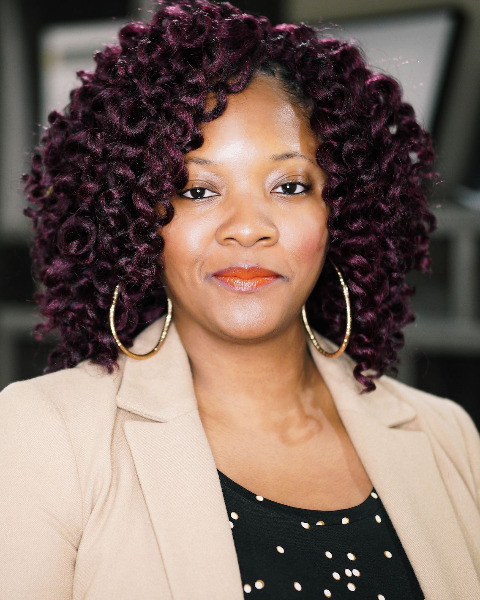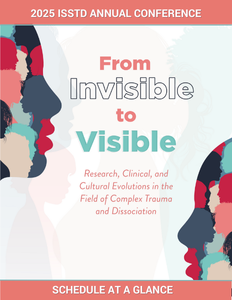Back
Pre Conference Workshop
Trauma Therapy for Black Women: Racism, Intersectionality, & Cultural Betrayal Trauma
Thursday, March 13, 2025
8:30 AM – 12:00 PM US Eastern Time
Location: Avenue 34: Studio 2
Learning Level: Beginning

Robyn L. Gobin, PhD
Associate Professor
University of Illinois Urbana Champaign
Savoy, Illinois, United States- JG
Jennifer M. Gómez, PhD
Assistant Professor
Boston University
Boston, Massachusetts, United States
Abstract
In this three-hour workshop, we will examine the ways in which cultural context impacts Black women who are healing from trauma. In the first half of the workshop, Dr. Gómez will provide a basic primer on structural racism (Neblett, 2022) and intersectional oppression (e.g., interlocking racism and sexism; Collins, 2017) that impact Black women. She then will detail her research with cultural betrayal trauma theory (CBTT; e.g., Giroux et al., 2023), which she created as a Black feminist scientific framework for examining the unique cultural betrayal harm of within-group violence in marginalized communities, including specifically Black male perpetrated sexual abuse against Black women. According to CBTT, (intra)cultural trust, such as solidarity in the Black community, is a protective factor against racism and intersectional oppression. As a violation of (intra)cultural trust, within-group violence is a cultural betrayal trauma. Research has shown that cultural betrayal trauma is associated with mental health outcomes, such as dissociation, and cultural outcomes, such as internalized prejudice (Howard Valdivia et al., 2023). Through a CBTT lens, the locus of pathology does not reside in the individual Black woman or girl; instead, the inequalities, the complex trauma, and the community response are implicated. Therefore, treatment includes addressing these various components at three levels: 1) structurally- using institutional courage (Freyd & Smidt, 2019) to eradicate racism and intersectional oppression within mental healthcare (Grzanka, 2020); 2) interpersonally- engaging the Black community in group-level acknowledgement and healing of racism, intersectional oppression, cultural betrayal trauma, and (intra)cultural pressure (French et al., 2020); and 3) individually- employing cultural competency into trauma therapy. Building on this foundation, Dr. Gómez will then introduce relational cultural therapy (RCT; Jordan, 2017), an evidence-informed therapeutic approach that centers both the therapeutic relationship and the client’s context in healing. She will close this first half of the workshop by applying the tenets of RCT to a Black woman survivor of cultural betrayal trauma, Nikiya (pseudonym). In the second half of the workshop, Dr. Gobin will introduce strategies for incorporating cultural context into assessment and therapy with Black women who have experienced cultural betrayal trauma. Ways to center the cultural context of the person, their experience, and the unique manifestation of their symptoms will be examined. Therapy models developed specifically for Black women trauma survivors will be introduced. Methods for integrating cultural values and practices into evidence-based trauma therapies will also be explored. This skill-building session will feature a combination of instructional methods, such as personal reflection exercises, case analyses, and interactive lectures. To reinforce session themes, video clips, songs, and poems will also be incorporated.
Timed Outline
30 Minutes - Presentation of racism and intersectionality
15 Minutes - Presentation of CBTT and research evidence
45 Minutes - Presentation of RCT and Case example
30 Minutes - Break
30 Minutes - Centering cultural context in assessment and case conceptualization
30 Minutes - Integrating cultural values and practices in trauma therapy
15 Minutes - Culturally responsive techniques for healing
15 Minutes - Q&A
In this three-hour workshop, we will examine the ways in which cultural context impacts Black women who are healing from trauma. In the first half of the workshop, Dr. Gómez will provide a basic primer on structural racism (Neblett, 2022) and intersectional oppression (e.g., interlocking racism and sexism; Collins, 2017) that impact Black women. She then will detail her research with cultural betrayal trauma theory (CBTT; e.g., Giroux et al., 2023), which she created as a Black feminist scientific framework for examining the unique cultural betrayal harm of within-group violence in marginalized communities, including specifically Black male perpetrated sexual abuse against Black women. According to CBTT, (intra)cultural trust, such as solidarity in the Black community, is a protective factor against racism and intersectional oppression. As a violation of (intra)cultural trust, within-group violence is a cultural betrayal trauma. Research has shown that cultural betrayal trauma is associated with mental health outcomes, such as dissociation, and cultural outcomes, such as internalized prejudice (Howard Valdivia et al., 2023). Through a CBTT lens, the locus of pathology does not reside in the individual Black woman or girl; instead, the inequalities, the complex trauma, and the community response are implicated. Therefore, treatment includes addressing these various components at three levels: 1) structurally- using institutional courage (Freyd & Smidt, 2019) to eradicate racism and intersectional oppression within mental healthcare (Grzanka, 2020); 2) interpersonally- engaging the Black community in group-level acknowledgement and healing of racism, intersectional oppression, cultural betrayal trauma, and (intra)cultural pressure (French et al., 2020); and 3) individually- employing cultural competency into trauma therapy. Building on this foundation, Dr. Gómez will then introduce relational cultural therapy (RCT; Jordan, 2017), an evidence-informed therapeutic approach that centers both the therapeutic relationship and the client’s context in healing. She will close this first half of the workshop by applying the tenets of RCT to a Black woman survivor of cultural betrayal trauma, Nikiya (pseudonym). In the second half of the workshop, Dr. Gobin will introduce strategies for incorporating cultural context into assessment and therapy with Black women who have experienced cultural betrayal trauma. Ways to center the cultural context of the person, their experience, and the unique manifestation of their symptoms will be examined. Therapy models developed specifically for Black women trauma survivors will be introduced. Methods for integrating cultural values and practices into evidence-based trauma therapies will also be explored. This skill-building session will feature a combination of instructional methods, such as personal reflection exercises, case analyses, and interactive lectures. To reinforce session themes, video clips, songs, and poems will also be incorporated.
Timed Outline
30 Minutes - Presentation of racism and intersectionality
15 Minutes - Presentation of CBTT and research evidence
45 Minutes - Presentation of RCT and Case example
30 Minutes - Break
30 Minutes - Centering cultural context in assessment and case conceptualization
30 Minutes - Integrating cultural values and practices in trauma therapy
15 Minutes - Culturally responsive techniques for healing
15 Minutes - Q&A
Learning Objectives:
At the conclusion of this session participants will be able to:
- Define three primary aspects of cultural betrayal trauma theory: (intra)cultural trust, cultural betrayal trauma, and cultural outcomes
- Identify examples of therapeutic strategies at the structural, interpersonal, and individual levels
- Identify the utility of relational cultural therapy in working with Black and other marginalized survivors of complex trauma
- Assess the impact of cultural context and identity on cultural betrayal trauma and the trauma recovery process
- List at least two ways that evidence-based trauma therapies can be culturally adapted to meet the needs of Black women

